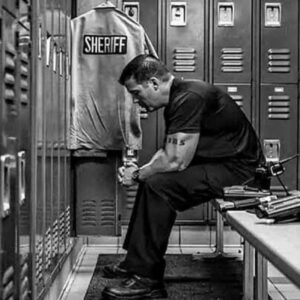
January 9, 2023
The Police Stress Unit Frontline B O L O Program
Alcohol Abuse and Drug Addiction in Policing
Alcohol abuse represents a critical issue in law enforcement work. According to a recent
study, as many as 25 to 30% of law enforcement officers have addictions to either alcohol or drugs.
This number is more than twice the average national rate for additions among civilians. While the
social use of alcohol may be accepted in most professions, excessive use can impair an individual’s
ability to function properly at work and at home. This can prove particularly dangerous for law
enforcement personnel. Eleven percent of male officers and sixteen percent of female officers
reported regular alcohol use levels that deemed them risk.
Addiction in the law enforcement profession is much more serious than most people
realize. These shocking statistics cannot be denied or ignored, and it’s so important for those who
are working as police officers to understand that trying to maintain an addiction is no way to live
their lives. Today, so much more is known about what leads to addiction when compared with what
we knew just a few years ago. We know that genetics play a role in addictions, as well as addictive
personalities and mental health issues. When it comes to those in law enforcement, we know that
there are so many challenges these individuals face that leave them susceptible to becoming
addicted.
Some of these include:
Sleep Deprivation: This is a major problem for those who work in the law enforcement profession.
Many officers work various shifts that are constantly changing. That makes it impossible for
them to create a sleep schedule for themselves and stick to it. They may take on overtime shifts, or
even work second jobs to supplement their income. In cases such as these, taking
medications to help with sleep are very common, and those who do so will often find that they grow
reliant on other medications (stimulants) to help themselves wake up. Over time, this can develop
into a dangerous cycle that is impossible to escape without professional help.
Stress: Working in law enforcement is an incredibly stressful job, and most civilians don’t realize the
amount of stress that officers face on a regular basis. Law Enforcement Officers face traumatic
incidents throughout their career. These events, typically unexpected and sudden, fall well beyond
the bounds of a normal experience; hence, they can have profound physical, emotional, and
psychological impacts even for the best trained, experienced, and seasoned officers.
Post-Traumatic Stress Disorder (PTSD): PTSD goes beyond the ordinary type of stress that
many officers face on the job and it moves into a category all its own. PTSD is a genuine problem
for law enforcement officers, and yet, many of them are reluctant to admit that they have a problem
that needs to be treated. Instead, they choose to self-medicate and suffer in silence. The abuse of
prescription drugs and alcohol are both used by police officers to reduce the symptoms of PTSD.
A Lack of Personal Time, Healthy Relationships and Financial Problems: Because law
enforcement officers often have to work such long and strange hours, they definitely lack when it
comes to spending time with the people they love the most. This can cause them problems in their
interpersonal family relationship, and not having time for themselves can also encourage them to
turn to other addictions such as gambling, sexual, and other risky behaviors.
Injuries On The Job: Police officers get hurt on the job. When it happens, they go to the doctor
for help. Doctors are often quick to prescribe addictive medications without giving their addictive
nature much thought. Because of this, many officer become addicted to their prescription drugs
unknowingly or by accident and most officers just want to get back to work.
And The Police Culture Plays A Big Part: The law enforcement culture has historically made
alcohol consumption an element of many social engagements, as well as accepting its use as a way to
get through traumatic events, to deal with administrative frustrations, and cope with a painful
breakup, divorce, or loss. Alcohol is such a part of the police culture we say, “Never trust a cop
who does not drink.” In law enforcement, “choir practice” refers to a gathering of cops,
generally, after a shift, meeting at the FOP Lodge to shoot the shit about the day and talk shop.
It is important to keep in mind that addiction is a disease and it’s not something that goes away. Today, many law enforcement agencies have been educated about the disease of addiction and they are much more willing to assist an officer if they decide to seek help before it gets to the point, you lose your job. When it comes to assistance there are many options such as intensive outpatient treatment, inpatient treatment, support groups such as alcoholics or narcotics anonymous, including 12 – Step programs designed for First Responders. It is all about recovery, getting healthy and continuing to work in the profession you made a commitment to.
For a Confidential Response or Questions
Contact The P S U – Police Stress Unit by Calling 407-497-1465
